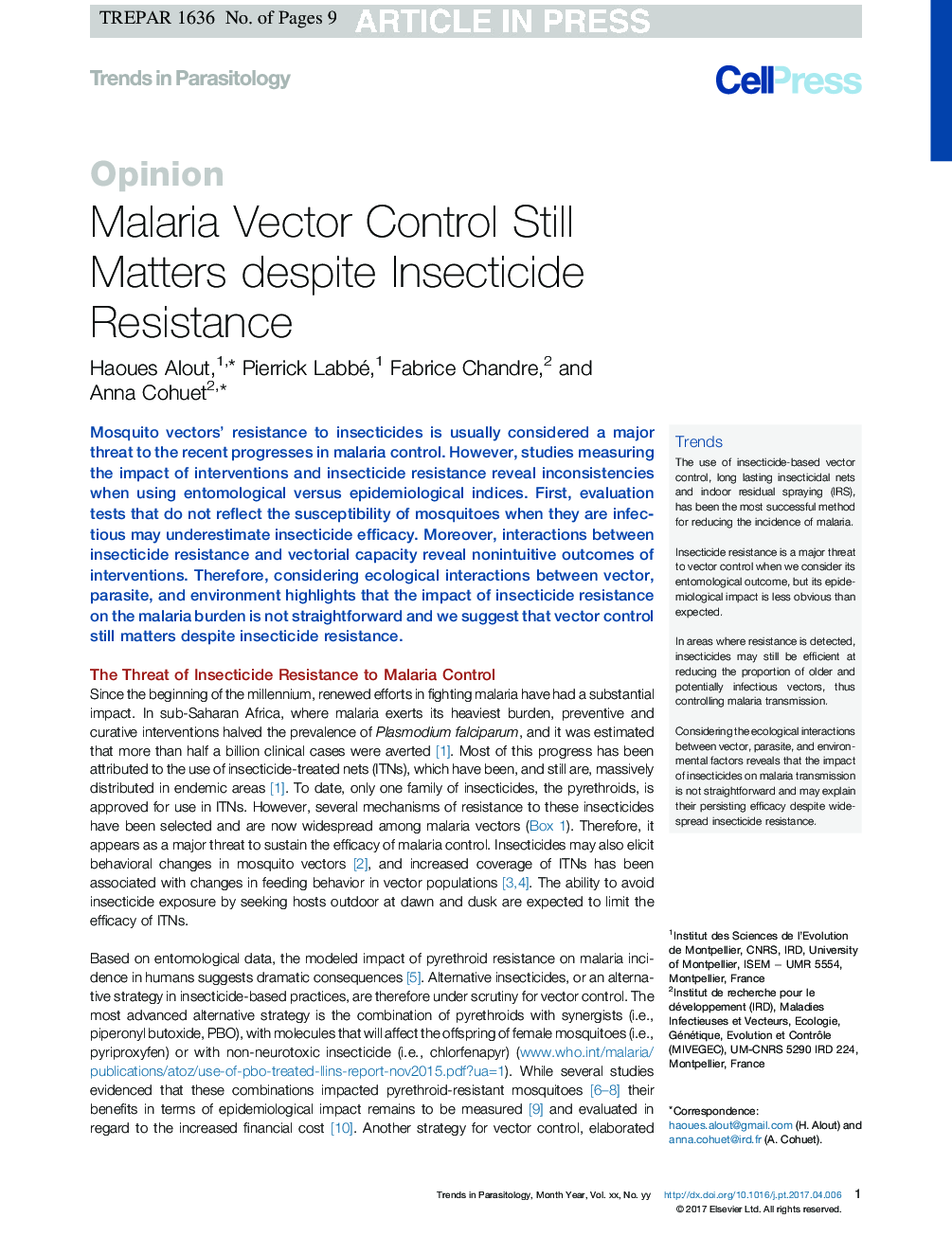| Article ID | Journal | Published Year | Pages | File Type |
|---|---|---|---|---|
| 5674702 | Trends in Parasitology | 2017 | 9 Pages |
Abstract
Mosquito vectors' resistance to insecticides is usually considered a major threat to the recent progresses in malaria control. However, studies measuring the impact of interventions and insecticide resistance reveal inconsistencies when using entomological versus epidemiological indices. First, evaluation tests that do not reflect the susceptibility of mosquitoes when they are infectious may underestimate insecticide efficacy. Moreover, interactions between insecticide resistance and vectorial capacity reveal nonintuitive outcomes of interventions. Therefore, considering ecological interactions between vector, parasite, and environment highlights that the impact of insecticide resistance on the malaria burden is not straightforward and we suggest that vector control still matters despite insecticide resistance.
Related Topics
Life Sciences
Immunology and Microbiology
Parasitology
Authors
Haoues Alout, Pierrick Labbé, Fabrice Chandre, Anna Cohuet,
